Lost in Translation is a 2003 romantic comedy-drama film written and directed by Sofia Coppola. It stars Bill Murray as aging actor Bob Harris, who befriends college graduate Charlotte (Scarlett Johansson) in a Tokyo hotel.
| Lost in Translation | |
|---|---|
Theatrical release poster | |
| Directed by | Sofia Coppola |
| Produced by |
|
| Written by | Sofia Coppola |
| Starring |
|
| Music by | Kevin Shields |
| Cinematography | Lance Acord |
| Edited by | Sarah Flack |
Production company |
|
| Distributed by |
|
Release date |
|
Running time | 101 minutes |
| Country |
|
| Language |
|
| Budget | $4 million |
| Box office | $119.7 million |
Lost in Translation was nominated for four Academy Awards, including Best Picture, Best Actor for Bill Murray, and Best Director for Coppola; Coppola won for Best Original Screenplay. Murray and Johansson each won a BAFTA award for Best Actor in a Leading Role and Best Actress in a Leading Role respectively. The film grossed $119 million on a budget of $4 million.
Screenplay
Bob Harris, an aging American movie star, arrives in Tokyo to film an advertisement for Suntory whisky. Charlotte, a young college graduate, is left in her hotel room by her husband, John, a celebrity photographer on assignment in Tokyo. Charlotte is unsure of her future with John, feeling detached from his lifestyle and disillusioned about their relationship. Bob's own 25-year marriage is strained as he goes through a midlife crisis.
Each day, Bob and Charlotte encounter each other in the hotel, and finally meet at the hotel bar one night when neither can sleep. Eventually, Charlotte invites Bob to meet with some local friends of hers. The two bond through a fun night in Tokyo, welcomed without prejudice by Charlotte's friends and experiencing Japanese nightlife and culture. In the days that follow, Bob and Charlotte's platonic relationship develops as they spend more time together. One night, each unable to sleep, the two share an intimate conversation about Charlotte's personal troubles and Bob's married life.
On the penultimate night of his stay, Bob sleeps with the hotel bar's female jazz singer. The next morning Charlotte arrives at his room to invite him for lunch and overhears the woman in his room, leading to an argument over lunch. Later that night, during a fire alarm at the hotel, Bob and Charlotte reconcile and express how they will miss each other as they make a final visit to the hotel bar.
The following morning, Bob is set to return to the United States. He tells Charlotte goodbye at the hotel lobby and sadly watches her walk back to the elevator. In a taxi to the airport, Bob sees Charlotte on a crowded street and gets out and goes to her. He embraces the tearful Charlotte and whispers something in her ear. The two share a kiss, say goodbye and Bob departs.
- Bill Murray as Bob Harris
- Scarlett Johansson as Charlotte
- Giovanni Ribisi as John
- Anna Faris as Kelly
- Fumihiro Hayashi as Charlie Brown
- Akiko Takeshita as Ms. Kawasaki
- François Du Bois as the Pianist
- Takashi Fujii as TV host
- Hiromix as herself
Over the course of the film, several things are "lost in translation". Bob (Murray), a Japanese director (Yutaka Tadokoro), and an interpreter (Takeshita) are on a set, filming a commercial for Suntory whisky (specifically, 17-year-old Hibiki). In several exchanges, the director gives lengthy, impassioned directives in Japanese. These are invariably followed by brief, incomplete translations from the interpreter.
- Director (in Japanese, to the interpreter): "The translation is very important, O.K.? The translation."
Interpreter (in Japanese, to the director): "Yes, of course. I understand."
Director (in Japanese, to Bob): "Mr. Bob. You are sitting quietly in your study. And then there is a bottle of Suntory whisky on top of the table. You understand, right? With wholehearted feeling, slowly, look at the camera, tenderly, and as if you are meeting old friends, say the words. As if you are Bogie in Casablanca, saying, 'Here's looking at you, kid,'—Suntory time!"
Interpreter (In English, to Bob): "He wants you to turn, look in camera. O.K.?"
Bob: "...Is that all he said?"
- Director (in Japanese, to the interpreter): "The translation is very important, O.K.? The translation."
In addition to the meaning and detail lost in the translation of the director's words, the two central characters in the film—Bob and Charlotte—are also lost in other ways. On a basic level, they are lost in the alien Japanese culture. But in addition, they are lost in their own lives and relationships, a feeling, amplified by their displaced location, that leads to their blossoming friendship and growing connection with one another.
By her own admission, Coppola wanted to create a romantic movie about two characters that have a moment of connection. The story's timeline was intentionally shortened to emphasize this moment. Additionally, Coppola has said that since "there's not much happening in the story besides ", the filmmakers tried to keep an ongoing tension.
—Bill Murray
Murray has described his biggest challenge in portraying Bob as managing the character's conflicted feelings. On one hand, Murray said, Bob knows that it could be dangerous to become too close to Charlotte, but on the other, he is lonely and knows that having an affair would be easy. Murray worked to portray a balance between being affectionate and being "respectable".
The academic Marco Abel lists Lost in Translation as one of many films that belong to the category of "postromance" cinema, which he says offers a negative perspective of love, sex, romance, and dating. According to Abel, the characters in such films reject the idealized notion of lifelong monogamy.
The author and filmmaker Anita Schillhorn van Veen interprets the film as a criticism of modernity, in which Tokyo is a contemporary "floating world" of fleeting pleasures that are too alienating and amoral to facilitate meaningful relationships. Tessa Dwyer, writing for Linguistica Antverpiensia, New Series – Themes in Translation Studies, called Lost in Translation a polyglot film that challenges the film industry's "more usual tendency to ignore or deny issues of language difference" by highlighting Bob and Charlotte's difficult contact with the Japanese language.
Aesthetics
The author and lecturer Maria San Filippo contends that the film's setting, Tokyo, is an audiovisual metaphor for Bob and Charlotte's world views. She explains that the calm ambience of the city's hotel represents Bob's desire to be secure and undisturbed, while the energetic atmosphere of the city streets represents Charlotte's willingness to engage with the world. Coppola and Acord, the film's cinematographer, agreed that Lost in Translation needed to rely heavily on visual expression to support the characters' romance.
Robert Hahn, an essayist writing for The Southern Review, suggested that the filmmakers deliberately used chiaroscuro, the art of using strong contrasts between light and dark to support the story. He wrote that the film's dominant light tones symbolize feelings of humor and romance, and they are contrasted with dark tones that symbolize underlying feelings of despondency. He compared this to the technique of the painter John Singer Sargent.
The film's opening shot, which features a close shot of Charlotte sitting in translucent pink underwear, has interested various commentators. In particular, it has been compared to the portraitures of the painter John Kacere and the image of Brigitte Bardot in the opening scene of the 1963 film Contempt. Dwyer wrote that when the two shots are compared, they reveal the importance of language difference, as both films highlight the complexities involved with characters speaking multiple languages. Filippo wrote that while the image in Contempt is used to remark on sexual objectification, Coppola "doesn't seem to be making a statement at all beyond a sort of endorsement of beauty for beauty's sake".
Coppola revealed in a 2013 interview that the shot is indeed based on the art of Kacere. Geoff King, a professor of film at Brunel University (who published a book on the film, under the same name in a series titled "American indies", in 2010), contends that the shot is marked by an "obvious" appeal in its potential eroticism, and a "subtle" appeal in its artistic qualities. He used the shot as an example of the film's obvious attractions, which are characteristic of mainstream film, and its subtle ones, which are typified by "indie" film.
Development
—Sofia Coppola, 2003
Coppola devised the idea of Lost in Translation after many visits to Tokyo in her twenties, basing much of the story on her experiences there. Coppola was attracted to the neon lights of Tokyo and has described the Park Hyatt Tokyo, where most of the film's interior sequences take place, as one of her "favorite places in the world". Particularly, she was attracted to its quietness, design, and "combination of different cultures", which include a New York bar and French restaurant.
Coppola spent six months writing the film, beginning with "short stories" and "impressions" that culminated in a 70-page script. She wanted to create a story that was "a little more funny and romantic" than her previous feature, The Virgin Suicides, and she spent little time planning or rewriting it. Coppola has called the film a "valentine" to Tokyo, in which she has displayed the city in the way that it is meaningful to her.
Coppola wrote the film with Murray in mind and said she would not have made it without him. She said that she had always wanted to work with Murray and that she was attracted to his "sweet, lovable side". She pursued him for five months to a year, relentlessly sending telephone messages and letters.
Request Movie Now
Watch movie Lost In Translation Film online on Amazon
Watch movie Lost In Translation Film online
Watch The Movie On Prime
Well Done Abba Full HD Movie Download

Saudagar Full HD Movie Download
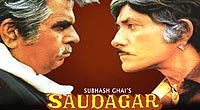
Oye Lucky! Lucky Oye! Full HD Movie Download

Patita Full HD Movie Download
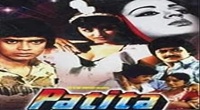
Deewangee (2002) Full HD Movie Download
.jpg)
Mohabbat (1997) Full HD Movie Download
.jpg)
Balwaan Full HD Movie Download
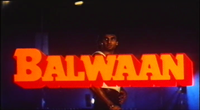
Shiva Dada Full HD Movie Download

Ganda Hendathi Full HD Movie Download

Bhagawan Shree Krishna Full HD Movie Download

Aakhari Khat Full HD Movie Download

Yamapasam Full HD Movie Download

Vaddante Dabbu Full HD Movie Download
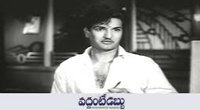
Alakadalinakkare Full HD Movie Download
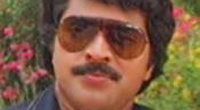
Mrugaya Full HD Movie Download

Imayam Full HD Movie Download
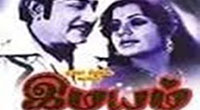
Bharath Bandh Full HD Movie Download
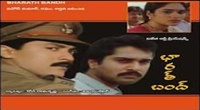
Konte Kodallu Full HD Movie Download
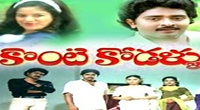
Palleturi Pidugu Full HD Movie Download

Andha Bichar (Bengali) Full HD Movie Download
.jpg)
Mohabbatein Full HD Movie Download
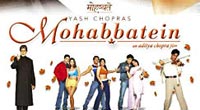

Download latest Movie from bollywood
Request for Download movie Lost In Translation Film
- Bollywood movies
- Latest Bollywood movies
- Download all bengali movies
- Download all bhojpuri movies
- Download all english movies
- Download all gujarati movies
- Download all hindi movies
- Download all kannada movies
- Download all malayalam movies
- Download all marathi movies
- Download all oriya movies
- Download all punjabi movies
- Download all tamil movies
- Download all telugu movies
- Bollywood action movies
- Bollywood adventure movies
- Bollywood animation movies
- Bollywood classical movies
- Bollywood comedy movies
- Bollywood crime movies
- Bollywood devotional movies
- Bollywood documentary movies
- Bollywood drama movies
- Bollywood family movies
- Bollywood fantasy movies
- Bollywood historical movies
- Bollywood history movies
- Bollywood horror movies
- Bollywood musical movies
- Bollywood mystery movies
- Bollywood mythological movies
- Bollywood patriotic movies
- Bollywood romance movies
- Bollywood romantic movies
- Bollywood sci-fi movies
- Bollywood social movies
- Bollywood spiritual movies
- Bollywood sports movies
- Bollywood suspense movies
- Bollywood thriller movies
- Bollywood war movies
- Hot actress list
- Hot gujarati actress list
- Hot tamil actress list
- Hot bhojpuri actress list
- Hot assam actress list
- Hot bihari actress list
- Hot jammu and kashmir actress list
- Hot gujarati actress list
- Hot haryana actress list
- Hot konkani actress list
- Hot marathi actress list
- Hot odia actress list
- Hot punjabi actress list
- Hot rajasthani actress list
- Hot kannada actress list
- Hot malayalam actress list
- Hot telugu actress list
- Hot tulu actress list
- Hot Actress list from Indian city
- Hot actress list from ahmedabad
- Hot actress list from alappuzha
- Hot actress list from bangalore
- Hot actress list from bangalore
- Hot actress list from bhopal
- Hot actress list from chandigarh
- Hot actress list from chennai
- Hot actress list from guwahati
- Hot actress list from hyderabad, india
- Hot actress list from indore
- Hot actress list from jaipur
- Hot actress list from kannur
- Hot actress list from kochi
- Hot actress list from kolkata
- Hot actress list from kollam
- Hot actress list from kottayam
- Hot actress list from kozhikode
- Hot actress list from lucknow
- Hot actress list from madurai
- Hot actress list from mangalore
- Hot actress list from mumbai
- Hot actress list from mysore
- Hot actress list from new delhi
- Hot actress list from patna
- Hot actress list from pune
- Hot actress list from thiruvananthapuram
- Hot actress list from thrissur
- Hot actress list from tiruchirappalli
- Hot actress list from vijayawada
- Hot actress list from visakhapatnam
- All Bollywood Movies
- Bollywood Celeb
- >Art Director
- >Audiography
- >Background Music
- >Banner
- >Choreographer
- >Cinematographer
- >Costume Designer
- >Dialogue Writer
- >Director
- >Distributor
- >Editor
- >Executive Producer
- >Hair Stylist
- >Lyricist
- >Music Director
- >Photographer
- >Playback Singers
- >Presenter
- >Producer
- >Production Company
- >Production Designer
- >Screenplay
- >Singer
- >Sound
- >Actor
- >Story Writer
- >Studio
- >Video Director
- >Miscellaneous
- >Publicity (pro)
- >Web Creator
- >Production Labs
- >Publicity Design
- >Publicity Stills
- >Writer
- >Miscellaneous Artists
- >Visual Effects
- >Reporter
- >Music Company
- >Shooting Studios
- >Picturised On
- >Line Producer
- >Co Producer
- >Asst Director
- >Casting Director
- >Cinematography
- >Choreography
- >Dialouge
- >Editing
- >Lyrics
- >Music
- >Story
- >Playback Singer Female
- >Playback Singer Male
- >Actor In A Comic Role (male/female)
- >Child Artiste
- >Ensemble Cast
- >Actor Popular Choice (male)
- >Actor Popular Choice (female)
- >Sa Re Ga Ma Pa Song Of The Year
- >Actor In Supporting Role
- >Actress In Supporting Role
- >Actor In Leading Role
- >Art Direction
- >Actress In Leading Role
- >Sound Recording
- >Costume Design
- >Special Effects
- >Action
- >Actor In A Negative Role
- >Lifetime Achievement Award
- >Cinematic Exellence (director)
- >Cinematic Exellence (male)
- >Cinematic Exellence (female)
- >International Male Icon
- >International Female Icon
- >Actor In A Supporting Role (male)
- >Actor In A Supporting Role (female)
- >Actor In A Comic Role
- >Playback Singer (male)
- >Playback Singer (female)
- >Most Promising Debut (female)
- >Most Promising Debut (male)
- >Most Promising Director
- >Sound Design
- >Lifetime Jodi
- >Marketed Film
- >Jury Award For Best Actor
- >Jury Award For Best Actress
- >Jury Award For Best Film
- >Jury Award For Best Director
- >Playback Singer(male)
- >Lifetime Acheivement Award (male)
- >Excellence Award
- >Jodi Award
- >Performer Of The Year
- >Presented By
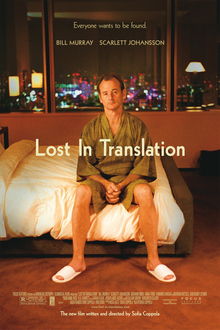 Story of movie Lost In Translation Film :
Story of movie Lost In Translation Film :